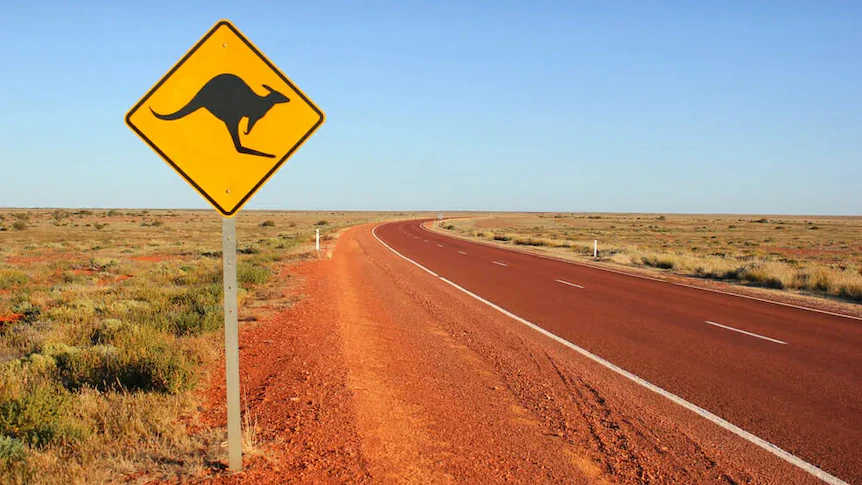By Keane Bourke
Copyright abc

A WA government department says the state’s new firearms laws are causing headaches for a program which responds to reports of injured and suffering animals on the roadside.
The government spent more than two years making its case for the changes to gun laws which are currently being phased in, and which it says make Western Australia’s laws the toughest laws in the nation.
The changes make it harder for people to get a firearms licence, and require stronger evidence of why a firearm is needed.
It also includes a tightening of rules around where firearms can be used, which was meant to crack down on a “loophole” which allowed recreational shooters easier access to guns.
But in its submission to a parliamentary inquiry reviewing the new legislation, the Department of Biodiversity, Conservation and Attraction (DBCA) said despite working with WA Police to “resolve known issues” with the laws since October 2024, “certain issues arising from the reforms remain unresolved”.
Key among those, director general Stuart Smith wrote, was the future of the Animal Control Agent (ACA) program, in which staff and registered volunteers use firearms to euthanise kangaroos on the roadside after being injured by cars.
“The ACA program has played an important role in supporting DBCA’s operational capacity to respond promptly to injured kangaroos and to uphold animal welfare standards, particularly in regional and peri-urban areas,” he wrote.
But Mr Smith wrote that under the new laws there were only two licence types which allow for the euthanasia of animals — one which covers department staff and another which covers shooters operating a commercial business.
“Neither licence type accommodates the activities of ACAs, who are volunteers acting in a non-commercial capacity,” he said.
“As a result, DBCA is reviewing the operation of the ACA program.
“It is doubtful that DBCA will be able to absorb these costs in current operational budgets.”
Animal welfare concerns
Opposition police spokesperson Adam Hort said those issues are “not a minor technicality”.
“It directly affects the welfare of injured wildlife and the capacity of volunteers to respond in regional and peri-urban areas, concerns we have consistently put on the record,” he said in a statement.
A DBCA spokesperson said it would finalise its review of the ACA program after the conclusion of the inquiry and the government provides its response.
“DBCA continues to liaise with the Western Australia Police Force to address matters relating to the Animal Control Agent program,” they told the ABC.
“Existing volunteers can continue to participate in the program, provided they hold a valid Western Australian firearms licence.
“DBCA is also liaising with other Crown land managers and relevant government agencies to assist with responding to injured wildlife.”
Biosecurity at risk
In its submission to the inquiry, the Shire of Upper Gascoyne raised concerns about its ability to carry out biosecurity responsibilities on shire land, including controlling wild dogs, cats, camels and donkeys.
“As it currently stands, the shire cannot register as a land owner so we can issue letters of permission for biosecurity contractors or staff to shoot on our property,” it reads.
“It is requested that shires be given the same rights as other land owners to register as property owners and issue property letters.”
Shire CEO John McCleary said that was causing problems across the 60,000 square kilometres the shire covers.
“Traditionally, we do that ourselves, you know, sort of we’re out there, and then we work in with other contractors,” he said.
“The other side is … when you’re driving these long distances, you take your rifle with you because … quite often you’ll hit an animal and you’ve got to try and euthanise it.
“You don’t want to leave the animal with a broken leg or a broken hip on the side of the road, so if you haven’t got a gun to dispatch of that animal, you’ve got to hit it over the head with a piece of steel or a piece of wood or something of that nature, or run over it again, which is getting pretty barbaric really.”
Mr McCleary was also concerned about the long-term impacts of less pest control being carried out.
“You’re going to get an increase of declared pests, so wild dogs and camels, these are all declared pests,” he said.
“So what happens if you can’t cull them, they get bigger, which will then impact on your productivity of your stations.”
Asked about the shire’s concerns, a spokesperson for WA Police said the legislation was undergoing a “thorough review” by parliament’s Legislation Committee.
“Once the review process is complete, the committee will present a report back to the Legislative Council outlining its findings and any recommendations it may have,” they said.
“It would be inappropriate for the Western Australia Police Force to provide comments on individual submissions prior to the release of the committee’s recommendations.”



